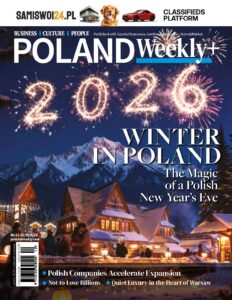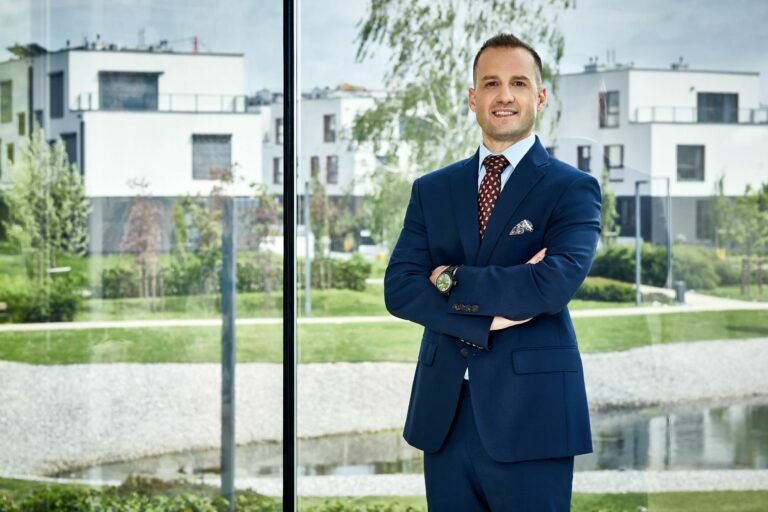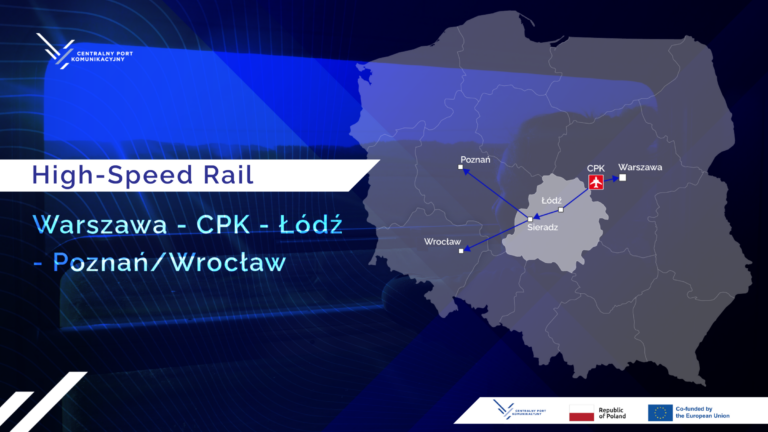Strong domestic demand and potential in attracting foreign tourists
Sylwia Ziemacka talks to Miguel Martins, Head Development Northern Europe at IHG Hotels & Resorts
How do you see the hotel market today in Poland after two years of the COVID pandemic? What are your observations?
What we can definitely state is that the hospitality industry is very resilient, and it has been amazing to see how IHG, together with our hotel teams and our owners, have had this capability of quickly adjusting to a very complicated situation. As different markets have different decisions from local governments, obviously not all the markets have been evolved in the same way Poland has. In Poland, the market is heavily based on domestic demand. Therefore, we have obviously seen an impact on the big cities, but there was a wave on resorts and leisure destinations. So, we’ve seen for example in 2020 and 2021 that the summer was just fantastic when we started to see those signs of recovery. I think it was a record year for most companies. This also meant a shift on investments and on
decisions made by developers. I’m covering 17 countries [in my role], so it’s kind of a big region within Europe. It’s what IHG calls Northern Europe. Those markets that are heavily dependent on international travellers are the markets which are recovering the slowest right now. And if you have very big domestic demand, those markets are the ones more capable to recover and to come out on top.
And Poland is one of them?
And Poland is definitely one of them. One of the reasons why I initially came here as a developer and then obviously with IHG was the strong domestic demand and opportunities that lie in the region. And I always say, the key trigger in all of this was the Euros in 2012 because of the many event preparations, all the improvements of infrastructure of the roads, airports, train stations – this meant that the entire population and those surrounding countries managed to discover Poland. Usually when you talk to visitors about Poland, they say Krakow. Poland is much more than Kraków. All the offerings that you have in the Baltics, in the mountains, all the beautiful cities that you have in the east, the history but also the nature element. I was even skating on a frozen lake for the first time ever! So, there are so many things that you can do in Poland and the infrastructure and its improvement have allowed people to discover the country, in my opinion. From a development viewpoint, there is still much to do in terms of presenting the offer that Poland has, because I agree that even those who travel from abroad are usually surprised with what they discover.
Yes, definitely. I agree there is a big space for improvement. Do you see any progress in this regard?
I have always said that it’s a very specific situation where supply is pulling demand and not vice versa. Usually how you take your decisions in a normal investment is that you obviously make an assessment of demand and you see that, for example, a city like Warsaw has a lot of tourists or number of passengers arriving at the airport. Therefore, they need to have accommodation, and that’s how you make your business case out of it. I think it is very interesting that there are so many places that are still largely unexplored by international travellers. Poland didn’t have supply because it didn’t have the infrastructure. It didn’t have proper hotels to accommodate guests, so for many, travelling here was almost impossible. So, that’s why at IHG, we have a comprehensive strategy in this market. We are one of the top ten companies currently in this market and looking to grow. We’re always looking for ways to go beyond our original operation strategy of growth and also look at leisure destinations. And this is definitely a strong business case! We see that travellers are expecting a certain quality of hotel and therefore bridging the gap is key. For example, last year we signed two resort hotels, voco Resort Szklarska Poręba and Holiday Inn Resort Szklarska Poręba, showing just how much appetite there is for our brands in the region. We’ve also recently opened IHG’s first dual-branded complex in market, Crowne Plaza and Holiday Inn Express Warsaw the HUB. For us, it’s not about having too many brands, it’s about having distinct brands that suit the needs of our guests and owners. Why go long-haul if you can have a proper accommodation in driving distance? The pandemic lead to new guest behaviour. The situation was so uncertain for a long time, but people were still eager to travel. Traveling by car at a certain moment became easier in terms of procedures and restrictions. So that element is also extremely interesting because obviously we do have a lot of neighbouring countries.
Your strategy assumes that you construct hotels from scratch, but are you also planning acquisitions?
At IHG we operate an asset light business model, meaning we operate in three different ways – as a franchisor, a manager and on an owned and leased basis. This allows us to be business model agnostic, and also enables the speed and level of our support to be just right for our owners. Currently we have 14 hotels in operation. We have 23 in the pipeline in Poland, including the two resort hotels we have signed last year in Szklarska Poręba. And I think that there is the potential for us to grow at that scale. And obviously we work with strategic partners, developers and investors in order to establish those relationships.
Which segments of the hotel sector are now on the rise and which need a little bit more time to recover after the pandemic?
There are two elements that I will mention. One is how IHG Hotels and Resorts is currently on a growth and expansion plan. And I don’t think we will deviate from that irrespective of what happens with COVID. The second element is looking at the new markets or new opportunities that we can explore. We are still very much looking for key Polish cities as we believe that we are still not represented in full in some of them. We’ve always focused on regional cities and definitely those regional cities have now become our powerhouses in the process. We have representation of our mainstream brands, like Holiday Inn or Holiday Inn Express, in this type of city. But as the shared services business is flourishing in the regional cities, we need to have different products to accommodate that. The second element, which I mentioned earlier, is that we are definitely seeing strong demand around leisure destinations with our resort brands like Holiday Inn Resort, voco and Crowne Plaza. We definitely want leisure destinations which have the possibility to leverage on the MICE segment, on meetings, on events in order to allow for a longer season or extended season.
I understand that you are talking about private tourism. But I think that for many hotels, especially those in the cities, the MICE segment is very important for revenue, cashflow and stability. So, I’m wondering how this is incorporated into this recovery process?
I would say that domestic demand, individuals and corporate leisure are definitely the first step. When we will be talking about corporate MICE and even leisure MICE, its growth is conditioned by existing restrictions. On all the markets that I’m responsible for, I’ve seen a lot of countries that have fully lifted all restrictions. So that is one of the elements for a faster recovery. The second is obviously the number of people vaccinated that will help tremendously on the recovery. But don’t forget that people need to meet, and they like to meet.
Just to summarize, what makes Poland attractive in terms of investing in the hotel and hospitality market?
Definitely on the 17 countries that I’m overseeing, Poland is a market that we are looking to expand our presence in. Firstly, regarding location, I think Poland has a brilliant location within Europe and that makes it important to all its neighbours. The second element is related to the dependency on the domestic, not just international travellers. The other element is what I mentioned previously, the fact that Poland has been attracting international companies. You obviously have a population which is well educated, hard working and it’s continuing to grow. Not forgetting the fact that the infrastructure, the roads, the airports, the train stations, have brought Poland onto a completely different competitive level – it’s about understanding that Poland is not just one city or two cities, but is actually a whole dimension where 38.5 million people live. I think all in all Poland is a promising market and I look forward to the opportunities which develop here in the years to come.
From what you are saying, that you have such a positive outlook based on domestic demand, I can imagine that if Poland or Polish cities do succeed in attracting and building awareness among international tourists, the results will even go beyond current assumptions.
Absolutely. That’s what we are hoping for as well!







